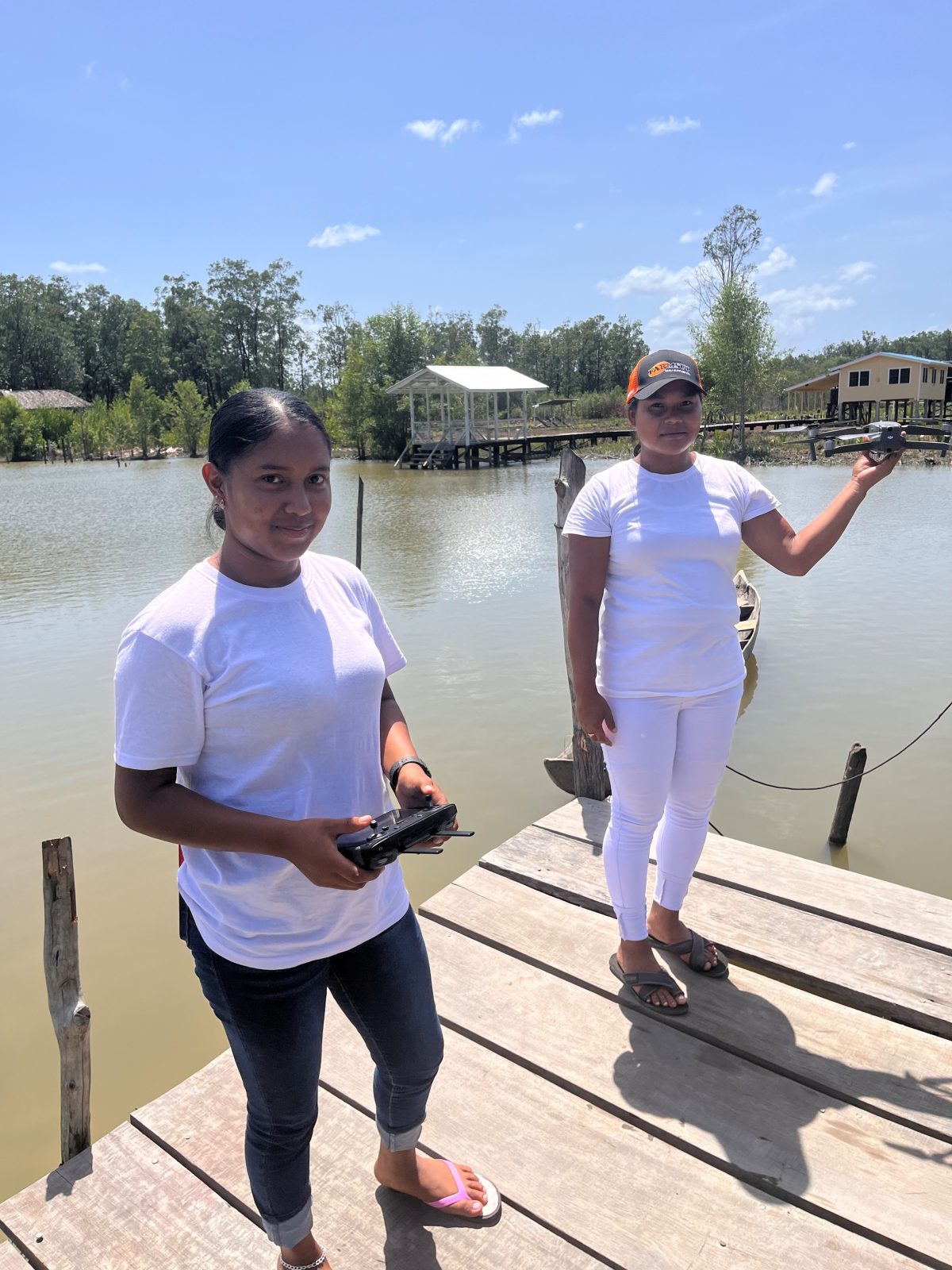Drones will now bolster the efforts of conservationists to monitor and protect mangroves in the Barima-Mora Passage, Region One, thanks to a donation by the United Kingdom.
The British High Commission on March 28 in a release, informed that a group of Indigenous girls and boys are being trained to use drone technology to protect mangroves and raise awareness about their importance within their local communities.
The release stated that through the three-month pilot programme, seven youths from Aruka, Smith Creek, Morawhanna and Imbotero were trained and received certification in drone operation for monitoring mangroves and the coastal ecosystem.
It explained that their work will support the Barima Mora Passage blue economy and enhance climate resilience. By monitoring and capturing aerial footage of areas impacted by illegal clearing and natural as well as man-made fires. Further, the “climate champions” will help to monitor the mangrove ecosystems and report threats so action can be taken to prevent further degradation.
According to the release, British High Commissioner Jane Miller, Programme Manager Kassia De Santos, and Political, Press & Public Affairs Officer Tianna Graham, visited Region One to observe the training which was provided as part of the UK’s Blue Social Challenge Fund. During the visit, the High Commissioner presented a DJI Mavic 3 Pro drone to Annette Arjoon, Project Director of the Guyana Marine Conservation Society.
High Commissioner Miller emphasised to the trainees the critical importance of mangroves in sequestering carbon and impressed upon them that the training will be transformative by helping them to apply innovation to climate action in their communities. This, she said, is important since many Indigenous communities depend on the ecosystem services provided by mangroves and fisheries from the adjacent rivers for their livelihoods.
The pilot, Miller added, is instrumental in shaping the UK’s Blue Social Challenge Fund to be agile, responsive and effective in supporting communities to develop solutions to their climate challenges, while building resilience and livelihoods linked to the blue economy.
Meanwhile, Programme Lead Arjoon noted that the training will help in the long-term to strengthen monitoring capacity of Barima Mora Passage communities. It will support research and raise awareness and knowledge to improve the blue economy through conservation of critical marine and mangrove ecosystems, building sustainable livelihoods, and climate resilience.
Two days after the graduation of the drone trainees their services were required by the Protected Areas Commission to assist in identifying the location of a forest fire in the Shell Beach Protected Area, Guyana’s only coastal protected area which was established in 2011. The Barima Mora Passage drone unit was headed by Shakira Yipsam of Aruka. She was accompanied by Mariam Jerome and Mark Sam who prepared a mission report for the Guyana Marine Conservation Society on successful completion of their first drone mission, the release added.





